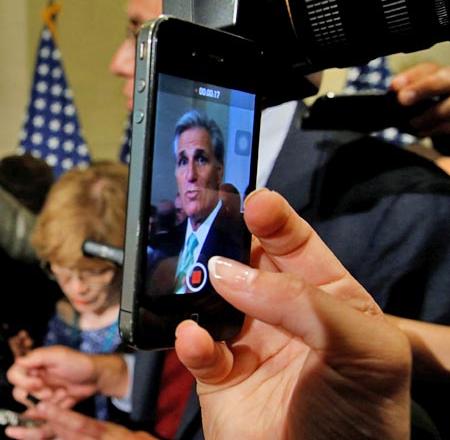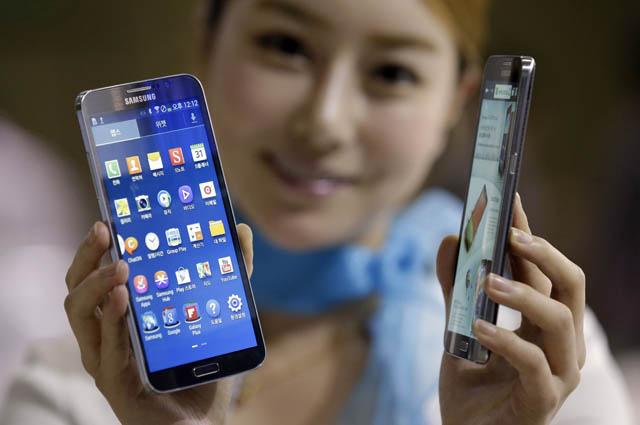You are here
Smartphone kill switches credited with stifling theft
By AFP - Feb 14,2015 - Last updated at Feb 14,2015
SAN FRANCISCO — Kill switches that render stolen smartphones useless were recently credited with stifling robberies and thefts in London, New York City and San Francisco. 
In London, the number of reports of smartphones being stolen from people dropped 40 per cent last year, after kill switches were introduced there, according to officials.
San Francisco last year recorded a 27 per cent decrease in overall mobile phone robberies, and a 40 per cent plunge in robberies targeting iPhones, according to the district attorney here.
California-based Apple was the first company to build in kill switches that let people remotely disable its smartphones, making them worthless to thieves interested in selling them to new users.
In New York City, there was an overall decline of 16 per cent in mobile phone robberies and a 25 per cent drop in iPhone robberies, officials there reported.
In London, the monthly average for the number of phones stolen has halved since September 2013 resulting in 20,000 fewer victims annually, according to figures released by Mayor Boris Johnson.
“The significant decrease in smartphone thefts since the implementation of kill-switch technology is no coincidence,” New York Police Commissioner William Bratton said in a joint release.
“Restricting the marketability of stolen cellphones and electronic devices has a direct correlation to a reduction of associated crimes and violence, as evidenced in London, San Francisco and New York.”
New York Attorney General Eric Schneiderman, San Francisco District Attorney George and Johnson co-chair a Secure Our Smartphones initiative launched in June of 2013 to find solutions to a violent crime wave of smartphone thefts.
The initiative pressed the smartphone industry to adopt kill switch technology as a theft deterrent.
Apple’s home state of California was the first in the nation to mandate kill switches in smartphones, passing a law that will take effect in July of this year.
Apple added the technology to iPhones in September of 2013 in the form of an Activation Lock feature added to the iOS 7 version of its mobile software and made it standard in new-generation iPhone 6 models.
Activation Lock calls for an Apple ID and password to reactivate an iPhone that has been remotely disabled by its owner.
South Korean consumer electronics titan Samsung released a “kill switch-type solution” last year for its Galaxy S5 smartphone, officials noted.
Google added a smartphone disabling feature to the Lollipop version of its Android mobile device software, and Microsoft is expected to have the capability built into a version of its smartphone operating system due out later this year.
“The wireless industry continues to roll out sophisticated new features, but preventing their own customers from being the target of a violent crime is the coolest technology they can bring to market,” Gascon said.
Related Articles
New crime data show Apple’s addition of a “kill switch” to its iPhones last September has sharply reduced robberies and thefts, authorities said Thursday.
Samsung Electronics will add two safeguards to its latest smartphone in an effort to deter rampant theft of the mobile devices, the company said Friday.
Major US wireless carriers and smartphone makers have agreed to introduce tools to enable users to lock their devices and wipe them clean of data if stolen, responding to pressure on the telecommunications industry to do more to stem theft.



















